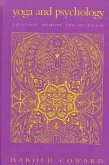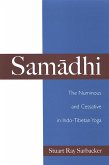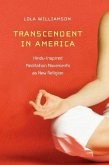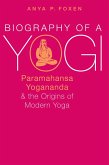Recent scholarship has shown that modern postural yoga is the outcome of a complex process of transcultural exchange and syncretism. This book doubles down on those claims and digs even deeper, looking to uncover the disparate but entangled roots of modern yoga practice. Anya Foxen shows that some of what we call yoga, especially in North America and Europe, is genealogically only slightly related to pre-modern Indian yoga traditions. Rather, it is equally, if not more so, grounded in Hellenistic theories of the subtle body, Western esotericism and magic, pre-modern European medicine, and late-nineteenth-century women's wellness programs. The book begins by examining concepts arising out of Greek philosophy and religion, including Pythagoreanism, Stoicism, Neo-Platonism, Galenic medicine, theurgy, and other cultural currents that have traditionally been categorized as "Western esotericism," as well as the more recent examples which scholars of American traditions have labeled "metaphysical religion." Marshaling these under the umbrella category of "harmonialism," Foxen argues that they represent a history of practices that were gradually subsumed into the language of yoga. Orientalism and gender become important categories of analysis as this narrative moves into the nineteenth century. Women considerably outnumber men in all studies of yoga except those conducted in India, and modern anglophone yoga exhibits important continuities with women's physical culture, feminist reform, and white women's engagement with Orientalism. Foxen's study allows us to recontextualize the peculiarities of American yoga--its focus on aesthetic representation, its privileging of bodily posture and unsystematic incorporation of breathwork, and above all its overwhelmingly white female demographic. In this context it addresses the ongoing conversation about cultural appropriation within the yoga community.
Dieser Download kann aus rechtlichen Gründen nur mit Rechnungsadresse in A, B, BG, CY, CZ, D, DK, EW, E, FIN, F, GR, HR, H, IRL, I, LT, L, LR, M, NL, PL, P, R, S, SLO, SK ausgeliefert werden.









